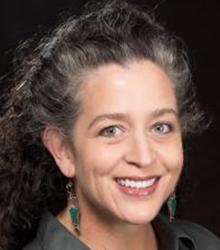
Jessica Fanning
Biography
Dr. Fanning is a Clinical Associate Professor in the Communication Disorders and Sciences (CDS) Program. In addition to teaching graduate and undergraduate courses within the CDS program, she is the director of the University of Oregon Fluency Center within the UO HEDCO Clinic. She has been an ASHA certified speech-language pathologist for 22-years and she has worked with children and families in K-12 school-based settings, behavior-based residential programs, clinic settings, and private practice. She is passionate about teaching, translational research, and evidence-based clinical practice. Her primary clinical interests include fluency disorders, behavior management and conduct disorders, autsim spectrum disorders, and family-centered intervention. She has lectured both nationally and internationally on: (a) evaluating and treating fluency disorders; (b) using iPad technology in clinical practice; (c) using parent-directed intervention to influence children's cognitive, linguistic, and emotional regulation development; and (d) striking the balance of evidence-based practice and practice-based evidence as a clinical scientist.
Education
Post-doctoral Research Fellowship (2011), University of Oregon Department of Psychology;
Program: Brain Development Laboratory
PhD (2007), University of Oregon Department of Special Education & Clinical Sciences;
Program: Communication Disorders & Sciences
MA (1996), University of Colorado, Boulder, CO;
Major: Communication Disorders & Speech Sciences
BA (1989), University of Colorado, Boulder, CO;
Dual-Major: Communication Disorders; Physical Therapy
Honors and Awards
2019 American Speech-Language-Hearing Association Award for Continuing Education
2016 University of Oregon College of Education Award of Excellence in Supervision
2016 American Speech-Language-Hearing Association Award for Continuing Education
2011 National Institute of Health (NIH) Early Researcher Award
Publications
O’Neil, L., Pakulak, E., Stevens, C., Bell, T., Fanning, J.L., Gaston, M., Gomsrud, M., Hampton Wray, A., Holmes, K., Klein, S., Longoria, Z., Reynolds, M., Snell, K., Soto, A., & Neville, H. (2019). Creating connections between researchers and educators. Journal of Cognition and Development, 20 (2), pp.110-133. doi: 10.1080/15248372.2018.1515078.
Neville, H.J., Stevens, C., Pakulak, E., Bell, T., Fanning, J. L., Klein, S., Isbell, E. (2013). Family-based training program improves brain function, cognition, and behavior in lower socioeconomic preschoolers. Proceedings of the National Academy of Sciences, 110(29), pp. 12138-12143. doi: 10.1073/pnas.1304437110.
Stevens, C., Fanning, J. L., Coch, D., Sanders, L., & Neville, H. J. (2007). Neural mechanisms of selective auditory attention are enhanced by computerized training: Electrophysiological evidence from language-impaired and typically developing children. Brain Research 1205, pp. 55–69.
Nippold, M.A., Fanning, J. L., & Ward-Lonergan, J. (2004). Persuasive Writing in School-Age Children, Adolescents, and Adults: Syntactic, Semantic, & Pragmatic Attainments. Language, Speech and Hearing Services in the Schools, 36(2), 125-138.
Research
Dr. Fanning's research program is focused on determining the effectiveness of using an Integrated Stuttering Intervention approach across the lifespan to explore the mechanisms of client change and the role of resilience in the client's life. Ultimately, she is interested in translating this research into clinical practice via modular intervention guidelines that speech-language specialists can implement across clinical settings. She is co-PI on a funded research project investigating how the use of medical case-example instruction influences faculty and student perspectives of curriculum quality. Past research areas of focus include fostering research partnerships between local educational agencies and university research facilities, family-centered intervention with families from lower socioeconomic backgrounds, and computerized language intervention.
